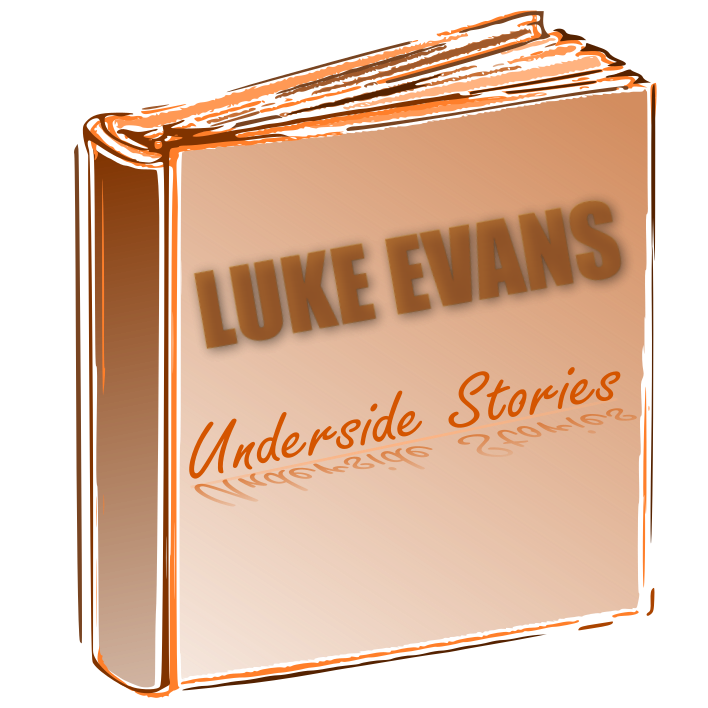What do you do when your money-hungry estranged father passes away, and you need the cash? Crash the funeral, of course!
Content warning: some crude language

Home for the Funeral
by Robb White
The semi-lit reception room of the funeral home was standard Victorian-era décor down to the lamps with frilled borders on the side tables—a time warp, John thought. He hadn’t worn a suit in decades. Some mourners he remembered, most he didn’t. A few people nodded at him, he nodded back. Two geezers his father’s age came up to him to shake his hand. Rheumy-eyed old men, as grasping as his father, who reached an old age with too much money and not enough good health to enjoy it.
Murmurs of greetings or condolences erupted in pockets around the room. Not much mourning going on, John thought, which was no surprise either, considering who lay in the casket.
“Said hello to our stepmom yet?”
His sister, creeping up from behind, just as she used to when they were teens.
“You’re funny as a rubber crutch, Miriam.”
“She’s looking at you now—see her? She’s wondering what the prodigal son is doing at her husband’s wake.”
“Let her wonder, the pig.”
“My, my,” Miriam said. “I didn’t know you carried grudges this long. You haven’t been back in—”
“Can it, Miriam,” her brother replied. “You don’t like me, I don’t like you. Neither of us likes that lap-dancing tart he married.”
Miriam ignored the rebuke, nodding. “You’d think she’d find something less revealing to wear. After all, this is supposed to be a solemn ceremony—boo-hoo. So why are you here, John, as if I didn’t know?”
“Tell me, has that lazy slob you married found work yet or are you still supporting him?”
Miriam shrugged, a reply unworthy of rebuttal. John didn’t care.
“Look at her, she can’t keep her eyes off you. Maybe she’s looking for her next ex-husband,” Miriam said.
A heavy-set woman behind them made distressing noise in her throat. John turned and received a scowl from her; she wore a navy-blue shawl wrapped around her throat like an Elizabethan ruff.
“Who’s she?”
“Dad’s lawyer’s wife. You don’t remember? God, they came over to the house every Wednesdays for bridge for years.”
“She put on weight,” John said. “I almost didn’t recognize you.”
“I told the children their Uncle John was dead, rotting in some Brazilian jungle chasing after diamonds.”
“Not diamonds. Tourmalines. You have kids?”
“You’re totally disgusting,” Miriam said. “You plan on coming to the house after? Nikki and her brood are living there now. She moved in after the divorce before Mom got sick. You couldn’t dynamite her out of there now.”
“Where’s the rest of it, Miriam?”
Miriam snorted. “You come right to the point, don’t you?”
“Some hidden drawer in a secretary, somewhere.”
“You heard of safety-deposit boxes, right?”
“No way,” John said, “not him. He wouldn’t have wanted her to have them. He hid them somewhere.”
“Her being . . . Mom?”
“No, idiot. That dyed-blonde tart in black with the boobs hanging to her knees.”
“If that’s the case, Nikki has them by now. Don’t you think she’d have torn the house apart after Mom died?”
“Nikki could find her ass with both hands and a mirror. See you around, Sis.”
“God, I hope not. Go back to your jungle, loser.”
“No way, Sis. I’m here for my share—and maybe a little more.”
* * *

When you hate someone as much as he did, you learned everything about him. He studied his father up close and from afar the way Nelson Mandela studied Afrikaans on Robben Island. You wanted to defeat your enemy, you learned his language. John’s father’s language was money—money in every denomination from dollars to euros. He could recite the values of the world’s currencies to the dollar in an eye blink. John tested his father with the Thai Bhat. His father responded with a figure involving three numbers after the decimal point. John told him he was wrong—"off by point-oh-two percentage points.”
“That was yesterday’s number,” his father had replied. “Check the forex tables for today.”
The money-grubbing old bastard was right.
But by the time he was seventeen, it went up in smoke—literally. By his 18th birthday, his father kicked him out of the house for smoking weed. By then, he was crashing on friends’ couches and selling “candy blunts”—marijuana blunts dipped in cough syrup—to high schoolers to support himself. He never went home again—not until the funeral.
John heard from the executor when he was in São Paulo trading in his tourmaline from months in the field. His finds always kept him supplied for another expedition, but he never hit the motherlode because the big mining outfits squeezed out solo adventurers from the prime digging locations where the rarest of Paraiba’s neon-blue tourmalines were to be found.
“I’m done impersonating a mole,” he told the lawyer. His lungs were clogged with the white dust from digging in unsafe conditions. The steamy rot of jungles, the constant itching from rashes and insect bites. He’d found a spotted Wandering Spider inside his backpack ten days ago. The damn things were so big and aggressive they attacked small rodents.
“How much is my cut?”
“Nothing,” the lawyer said. “Your father was very specific.”
John figured out to the penny what his siblings had been left. He knew his father had shilled them all, especially the ex-lap dancer wife. His father’s wealth was easily six times what the will stated.
Where’d you stash it, you Mammon-worshiping old fool?
Once his father’s favorite, “a chip off the old block,” as everyone said who saw them together, John knew his dad’s thinking inside and out. His dad’s wrath was aimed at his drug use, not him, and when John refused to accept a dime for college tuition and went sailing as a deckhand on the Great Lakes, his father cut off all contact with him.
He drove to the cement-block bar outside the township where his stepmother used to dance. The sign out front proclaimed DANC RS EV RY NITE, its missing letters like his stepmother’s until the old man paid for a fancy set of new choppers.
He drank rum-and-Cokes, one after the other, and thought it out. At twenty past two in the am, as the bulked-up, tattooed bartender brought him another drink, saying, “Last one, we’re closing,” John finally knew.
His father left a message only he understood when he left him out of the will. The money was there, by God, there and waiting—if he had the guts to get it.
“You’re drunk, man,” the bartender said. He leaned toward John, deltoids bunched. “Hit the road.”
John flew off the bar stool. He drove fast to the cemetery and used a tire iron to pop the latch on the tool shed.
With a full moon to assist, John trotted to the fresh grave using the cover of a stand of birch trees.
Digging through fresh dirt was easier than what he’d been doing in Paraiba looking for gems; after a couple hours, filthy and sweating through his clothes, he jammed the shovel’s blade into the lip of the coffin. Pressing with his weight, he popped it open at the seam.
His father’s face was bathed in the moon’s saffron light; it transformed his dead expression into a knowing grimace. John knew the look well—his old man’s expression every time he studied the financial section of the newspapers.
John braced himself for the task ahead. He felt all around his father’s body, starting from his shoulders and moving down. Embalming fluid had converted soft flesh into hard planking. Then his fingers touched something at the small of his father’s lower back beneath the fabric of the burial suit.
He flipped his father’s corpse over and pulled up the split suitcoat, ripped the back of the shirt open and found it—Eureka!
A synthetic sheet wrapped to conform to the body like the neoprene of a wet suit. The white edge of folded papers caught his eye in the moonlight. Delicately, like a surgeon removing a tumor, John removed them from their protective covering.
Too dark to read but he knew exactly what they were. He counted ten bearer bonds. Better than cash. He rapidly calculated their value based on what was left to the family.
Without turning his father’s corpse over or shutting the coffin lid, he reburied the grave.
Thought you’d take it with you, huh?
* * *
He passed the last sign heading out of town. John relaxed, feeling like a knight errant who’d passed his test—slain the dragon, saved the damsel in distress, conquered his enemy. The dawn breeze streamed over him. He smiled, thinking: The books got it wrong. You can go home again.

The sharp dialogue drives the story to its bold conclusion, and maybe a couple lessons thrown in!
-Luke
Meet the author:
Robb White has published several crime, horror, and mainstream stories in various magazines and anthologies. A third private-eye novel featuring Raimo Jarvi will be published this summer. “The Girl from the Sweater Factory,” a horror tale, was a finalist in The Dark Sire Magazine’s 2020 awards. Two recent horror stories are "The Backyard Digger" in The Yard and "The Tick Bite" in Black Petals.
White's most recent encounter with life's underside occurred last Sunday on his way to a downtown pizzeria on Main Street, deserted except for a few solitary pedestrians and single males on bikes with fold-up tents strapped to the back. In the gazebo where Oompa bands played in summer were a couple dozen employed poor of the town, many of them drug-addicted residents of a nearby public housing high-rise.



